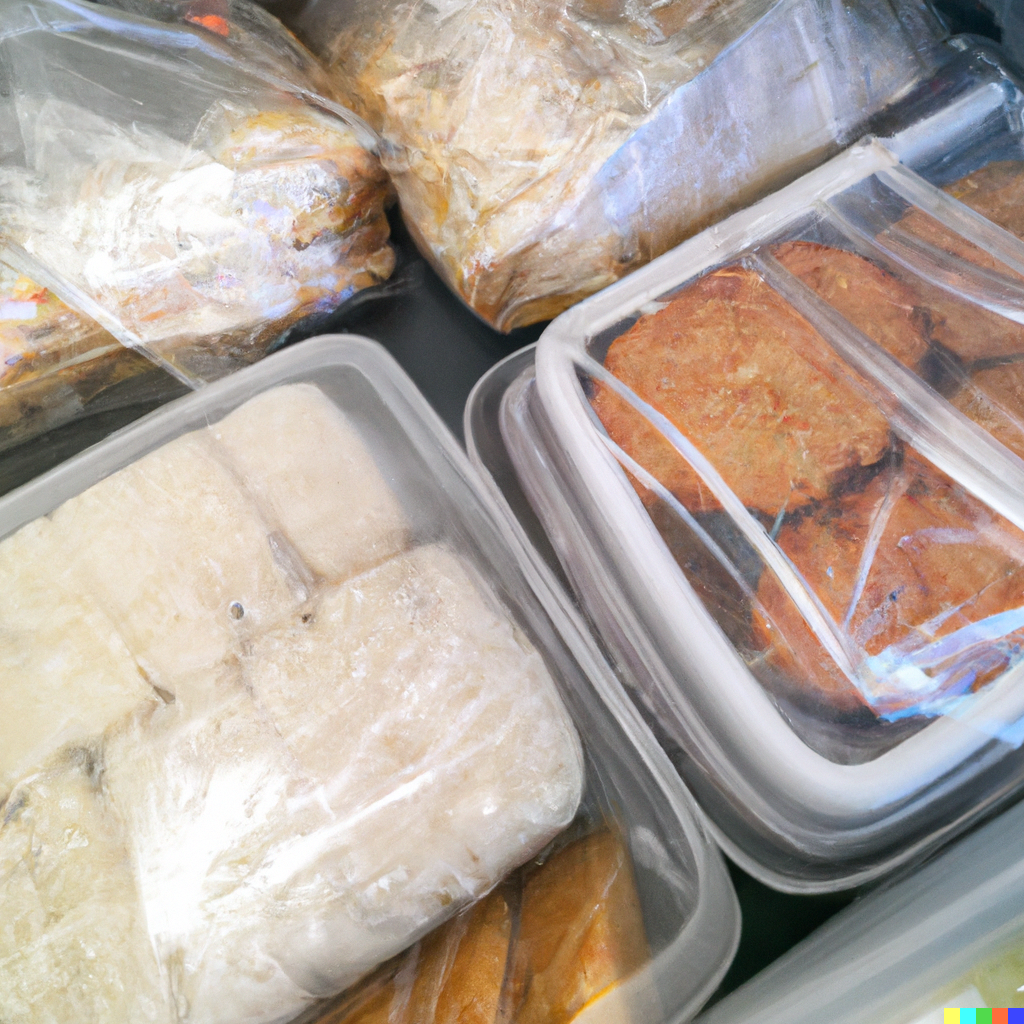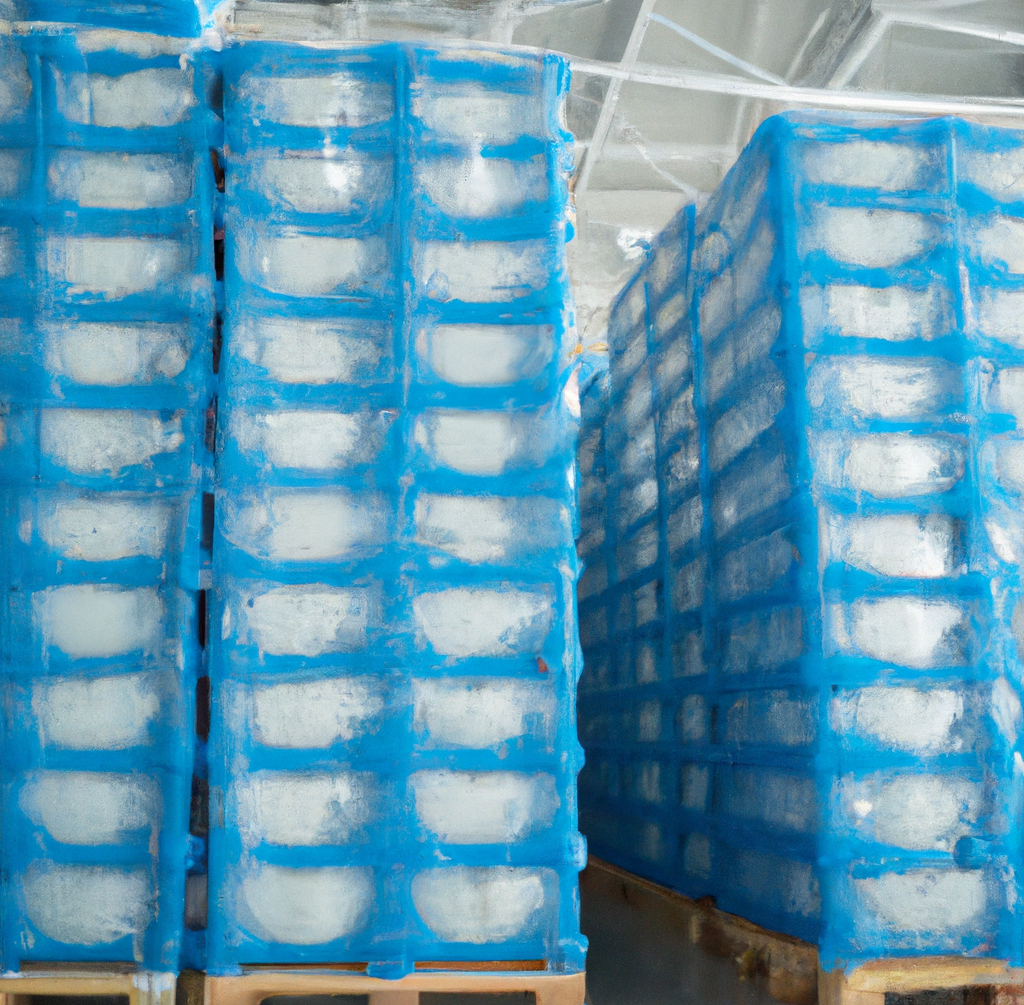Imagine a world where your favorite bottle of champagne always arrives at the perfect temperature, or your much-needed medication reaches you without losing any of its potency. This reality exists today with cold chain packaging, a revolution in the world of transportation that has taken the industry by storm. This blog post will dive into the top products which have integrated this innovative technology and are reaping the rewards in terms of safety, reliability, and customer satisfaction. Read on to explore how cold chain packaging is driving an unparalleled wave of change across industries globally.
Important products require cold chain packaging to maintain their temperature-sensitive nature during transportation and storage. Some examples include pharmaceuticals, vaccines, biologics, perishable food items (such as dairy products, meat, seafood, and fruits), and certain chemicals. Cold chain packaging plays a crucial role in preserving the integrity and effectiveness of these sensitive products.
Contact Us for a Control Temperature Packaging Quote

Ensuring Safe Transport for Temperature-Sensitive Goods
When it comes to the transportation of temperature-sensitive goods, ensuring their safe transport is paramount. If not handled correctly, these products can become compromised, leading to potential spoilage, degradation, or even contamination. Whether it’s perishable food items, pharmaceuticals, vaccines, or certain chemicals, maintaining the desired temperature range throughout the supply chain is crucial. Without proper measures in place, the integrity and effectiveness of these temperature-sensitive goods can be compromised.
Imagine a scenario where a shipment of vaccines is being transported to a remote area with limited access to medical facilities. The efficacy of these vaccines relies heavily on their ability to maintain the required temperature range until they reach their destination. A failure in maintaining this temperature range could render the vaccines ineffective, putting lives at risk and wasting valuable resources.
To mitigate such risks, cold chain packaging plays a significant role in ensuring safe transport for temperature-sensitive goods.
Importance of Cold Chain Packaging
Cold chain packaging is designed specifically to address the challenges associated with transporting temperature-sensitive products. It provides insulation and protection to maintain the required temperature range and prevent any adverse effects on product quality. From insulated boxes and refrigerated containers to gel packs, dry ice, and temperature monitoring devices, various solutions are available to cater to different product requirements and transportation conditions.
Let’s consider an example involving the transport of perishable seafood from one country to another. To ensure its freshness upon arrival, specialized cold chain packaging is used. This includes insulated boxes lined with gel packs or dry ice to maintain a low temperature throughout the journey. Additionally, temperature monitoring devices are employed to track and record any fluctuations during transit.
The use of cold chain packaging helps preserve the integrity of temperature-sensitive goods by mitigating the risks associated with exposure to unfavorable temperatures. It minimizes the chances of spoilage, degradation, or contamination that can occur when products are exposed to temperature extremes.
It’s important to note that the selection of appropriate cold chain packaging is essential. Factors such as the specific requirements of the product, transportation conditions, and the duration of transit need to be considered. A one-size-fits-all approach may not be suitable in all cases. Different industries and products may require tailored solutions to ensure safe transport and effective preservation.
Proper cold chain packaging not only safeguards the quality and effectiveness of temperature-sensitive goods but also helps prevent financial losses due to product spoilage or waste. By investing in robust packaging solutions, companies can mitigate risks and uphold their commitment to delivering safe and reliable products to customers.
Dangers of Inappropriate Packaging
When it comes to transporting temperature-sensitive goods, especially medicinal products, appropriate packaging is paramount. Inappropriate packaging can lead to significant risks and potential harm to the integrity and efficacy of these critical items. Let’s explore some of the dangers associated with inadequate cold chain packaging.

One of the primary risks is temperature excursions. Medicines and vaccines are often highly sensitive to temperature variations, requiring specific storage conditions to maintain their potency. If these products are exposed to temperatures outside their recommended range during transportation, their chemical composition can be altered, rendering them ineffective or even harmful to patients. For instance, vaccines that are not kept within the required temperature limits may lose their immunogenicity, compromising their ability to protect against diseases.
Consider a scenario where a shipment of insulin, a crucial medication for diabetes management, is exposed to high temperatures during transit due to inadequate insulation or cooling mechanisms. The heat could augment the degradation of the insulin molecule, reducing its effectiveness in controlling blood sugar levels for individuals living with diabetes. As a result, patients may experience adverse health effects and complications due to unstable glucose control.
Furthermore, inappropriate packaging can also lead to physical damage and contamination of medicinal products. Delicate items like vials or ampoules can break if not securely packed and protected from shocks and vibrations during transportation. This can result in loss of valuable medications and compromise patient safety.
Additionally, contamination risks arise when packaging fails to provide an effective barrier against external contaminants such as moisture, dust, or microorganisms. If pathogens infiltrate the packaging, they could potentially contaminate the medications inside, posing health hazards when administered to patients.
To mitigate these dangers and ensure safe transport for temperature-sensitive goods like medicines and vaccines, proper cold chain packaging is essential.
Top Medicinal Products Requiring Cold Chain Packaging
The pharmaceutical industry relies heavily on cold chain packaging for maintaining the quality and efficacy of various medicinal products. Let’s take a look at some of the top medicinal products that require stringent temperature-controlled packaging.
Vaccines: Vaccines play a critical role in preventing the spread of infectious diseases worldwide. To ensure their effectiveness, vaccines must be stored and transported within specific temperature ranges dictated by vaccine manufacturers. Failure to maintain these temperatures can render vaccines ineffective, compromising public health efforts.
Biologics: Biologic medications, including protein-based drugs and monoclonal antibodies, are delicate and often require strict temperature control during transportation. These complex molecules can lose their structure and therapeutic activity if exposed to unsuitable temperature conditions.
Blood Products: Blood components such as packed red blood cells, platelets, and plasma also demand cold chain packaging to safeguard their integrity. Maintaining proper temperatures is crucial for preserving these lifesaving products and preventing bacterial growth or spoilage.
Insulin: Insulin, a hormone used to manage diabetes, necessitates cold chain packaging to retain its potency. Exposure to elevated temperatures can lead to insulin degradation, affecting its ability to regulate blood sugar levels effectively.
While these are some examples of medicinal products commonly requiring cold chain packaging, it is important to note that different medications may have distinct requirements based on their stability profiles. The pharmaceutical industry invests significant efforts in developing specialized packaging solutions tailored to the unique needs of different drug formulations.
Pharmaceuticals and Vaccines
When it comes to temperature-sensitive products, pharmaceuticals and vaccines require utmost care and proper cold chain packaging to maintain their efficacy and safety. These life-saving medications are often susceptible to temperature fluctuations that can render them ineffective or even harmful if not stored and transported within the recommended temperature range.

Vaccines, for instance, are delicate biologics that stimulate immunity against various diseases. They need to be stored at specific temperatures throughout the entire supply chain, from manufacturing facilities to healthcare providers’ clinics and hospitals. Failure to maintain the required temperatures can lead to a loss of potency, rendering the vaccines ineffective in preventing diseases.
Pharmaceuticals encompass a wide range of medications, including over-the-counter drugs as well as prescription medications. Many of these drugs are designed to address critical health conditions, and any compromise in their quality due to improper handling during transportation could have severe consequences on patient health outcomes.
Imagine the impact if life-saving insulin, which is crucial for managing diabetes, was compromised during transportation due to poor cold chain management. Patients who depend on this medication would be left without a vital resource for managing their condition, potentially leading to life-threatening complications.
To ensure the integrity of pharmaceuticals and vaccines during transport, specialized cold chain packaging solutions are utilized. Insulated boxes or containers with temperature-controlled compartments help maintain stable temperatures throughout the journey. Additionally, gel packs or dry ice may be used as cooling agents to provide further insulation and temperature regulation.
Biological Samples and Medical Equipment
Biological samples, such as lab specimens or diagnostic materials, as well as medical equipment, play vital roles in healthcare settings. These items are often delicate and require specific conditions to preserve their integrity and usefulness.
Biological samples collected for diagnostic purposes, research, or disease monitoring need to be transported from one location to another without compromising their quality. Whether it’s blood samples, tissue samples, or genetic material, maintaining the right temperature is crucial for accurate analysis and diagnosis. A broken cold chain could lead to sample degradation and erroneous results, hindering proper patient care and medical advancements.
Similarly, medical equipment can be sensitive to temperature variations. Certain equipment, such as imaging machines or surgical tools, may require controlled temperatures to function optimally. Inadequate cold chain management during transportation can lead to malfunctioning equipment or even irreversible damage, resulting in delays in medical procedures and compromised patient care.
To safeguard biological samples and medical equipment during transport, specialized cold chain packaging solutions are employed. These solutions might include insulated containers with precise temperature control capabilities for specific needs. Additionally, temperature monitoring devices are often incorporated into the packaging to ensure that the critical items remain within the desired temperature range throughout their journey.
For instance, imagine a hospital needing to transport fragile lab specimens for urgent testing. Without proper cold chain packaging and temperature control measures, these invaluable samples risk losing their integrity and negating the efforts invested in collecting them.
With an understanding of how critical cold chain packaging is for pharmaceuticals, vaccines, biological samples, and medical equipment, it’s evident that ensuring safe transport for temperature-sensitive goods is paramount in numerous industries.
Top Food and Beverage Products for Cold Chain
In the ever-evolving landscape of the food and beverage industry, ensuring the safe transport and storage and packaging of temperature-sensitive foods is of paramount importance. The implementation of a robust cold chain system becomes crucial to maintain the quality, freshness, and integrity of various products. Let’s explore some of the top food and beverage products that heavily rely on cold chain packaging for their safe transportation and storage.
Ice Cream and Frozen Desserts
Few treats are as beloved as ice cream and frozen desserts, but their enjoyable indulgence relies heavily on maintaining the appropriate temperature throughout the supply chain. From production to retail, these frozen delicacies require strict temperature control in cold storage facilities, refrigerated transportation, and even during last-mile delivery.

This necessitates specialized cold chain packaging solutions such as insulated containers, freezer bags, and gel packs. Such packaging ensures that these frozen delights remain perfectly chilled throughout their journey from the manufacturing plant to your local supermarket or doorstep.
Imagine a gourmet ice cream producer who invests significant time and resources into meticulously crafting artisanal flavors. To uphold the quality of their product, they must ensure that each pint is transported in a temperature-controlled environment, avoiding any potential meltdowns along the way.
By utilizing cold chain packaging methods tailored to ice cream and frozen desserts, producers can maintain textural integrity, prevent flavor alteration, and offer consumers an exceptional sensory experience. Whether it’s a classic pint or an extravagant gelato creation, cold chain packaging plays a critical role in preserving these frozen delights’ delightful qualities.
Now that we’ve explored one example of a top food product relying on cold chain packaging let’s dive deeper into the world of seafood and meat products.
- Cold chain packaging is crucial for maintaining the quality and integrity of frozen desserts like ice cream. It ensures that these treats remain perfectly chilled throughout their journey from manufacturing to retail, preventing meltdowns and preserving their texture and flavor. Cold chain packaging methods tailored to ice cream and frozen desserts play a critical role in offering consumers an exceptional sensory experience. This highlights the importance of temperature control in the supply chain for perishable food items.
Seafood and Meat Products
When it comes to temperature-sensitive goods that require cold chain packaging for safe transport, seafood and meat products top the list. These perishable items are highly susceptible to spoilage and bacterial growth if not properly handled and stored at the correct temperatures throughout the supply chain.
Seafood, such as fish, shellfish, and crustaceans, are highly perishable due to their high water content. They require strict temperature control to maintain freshness and prevent bacterial contamination. The cold chain packaging for seafood typically involves specialized insulated containers or packaging materials that can keep the products at low temperatures during transportation. Additionally, advanced cooling systems like refrigerated trucks or containers equipped with temperature monitoring devices ensure that the seafood remains within the desired temperature range.
Meat products, including beef, poultry, and pork, are also prone to deterioration and microbial growth if exposed to improper temperatures. Cold chain packaging plays a critical role in preserving the quality and extending the shelf life of these products.
From slaughtering facilities to processing plants to distribution centers and retail outlets, maintaining appropriate temperatures is vital at every stage of the supply chain. This requires a combination of insulated packaging, refrigerated storage facilities, and efficient transportation methods to prevent any fluctuations in temperature.
For instance, imagine a shipment of fresh salmon fillets being transported from Alaska to a supermarket in California. Without proper cold chain packaging measures in place, these delicate seafood products would quickly degrade due to bacterial growth and oxidation caused by exposure to higher temperatures during transit.
However, when packed in insulated containers with gel packs or dry ice for thermal insulation and transported in refrigerated trucks or containers with controlled cooling systems, the salmon stays fresh and safe for consumption upon arrival.
It’s worth noting that seafood and meat products aren’t the only temperature-sensitive goods requiring cold chain packaging. Various other products fall under this category due to their sensitivity to temperature changes and the potential impact on their quality, efficacy, or safety.

Other Temperature-Sensitive Goods Necessitating Cold Chain Packaging
Besides seafood and meat products, several other temperature-sensitive goods necessitate cold chain packaging to ensure their integrity during transportation. These include:
- Dairy Products: Milk, cheese, yogurt, and other dairy products are highly perishable and susceptible to spoilage from bacterial growth if exposed to improper temperatures. Cold chain packaging solutions for dairy goods involve refrigerated transport vehicles and storage facilities to maintain freshness.
- Fresh Fruits and Vegetables: Certain fruits and vegetables, such as berries, leafy greens, and tropical fruits, are sensitive to temperature changes as they can ripen or decay quickly when exposed to extreme heat or cold. Cold chain packaging helps to preserve the quality and extend the shelf life of these fresh produce items.
These are examples of the wide range of temperature-sensitive goods that require cold chain packaging. The global demand for such packaging solutions is expected to continue growing as industries strive to deliver safe and high-quality products to consumers across the globe.
